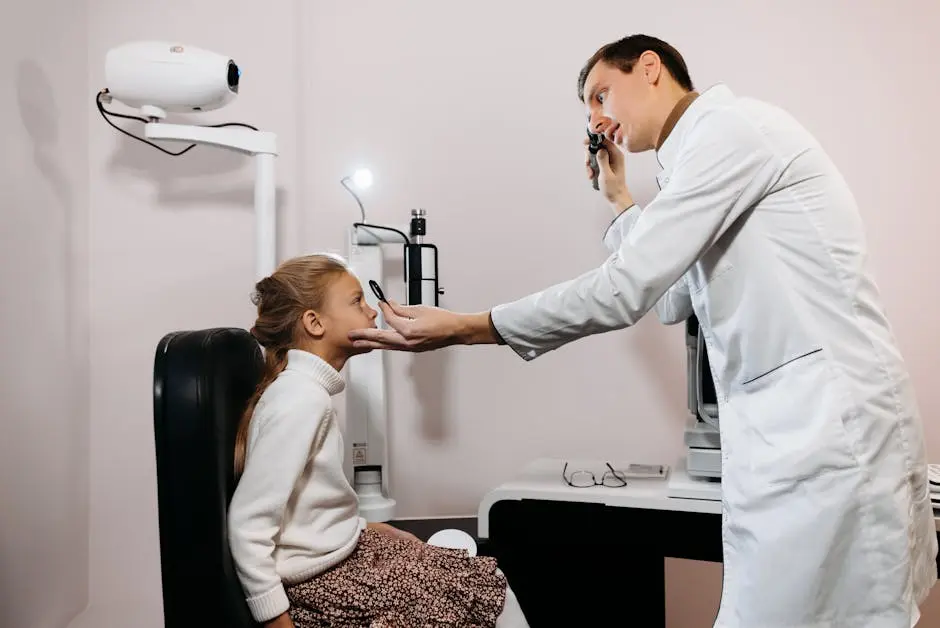
Our eyes are a vital part of our daily lives, yet we often take them for granted until issues arise. Knowing when to consult an eye specialist can save your vision and prevent complications. In this FAQ, we’ll explore some common scenarios that necessitate a visit to an eye professional.
Blurred Vision or Difficulty Focusing
If you notice that your vision has become blurry or you’re having trouble focusing on objects, it’s a good idea to book an appointment. This can be a sign of various potential issues, from needing glasses to more serious conditions.
Blurred vision can indicate refractive errors like myopia or hyperopia, which are easily corrected with prescription eyewear. However, it may also point to more serious concerns, such as diabetic retinopathy or macular degeneration. Early detection of these conditions by an eye specialist can help prevent further deterioration.
Struggling to focus seems harmless but can be an early warning sign for significant eye conditions. It may also result from prolonged digital screen use, leading to digital eye strain. Discussing your symptoms with an eye specialist can offer clarity on whether treatment or lifestyle changes are needed.
Frequent Headaches or Eye Strain
Headaches or strain around the eyes can be a sign of vision problems or even an eye condition. An eye specialist can help determine the cause and recommend treatment options.
Frequent headaches often go hand-in-hand with eye strain, suggesting possible vision changes that necessitate a professional assessment. This might connect to needing corrective lenses or could be indicative of eye conditions like astigmatism.
Prolonged exposure to screens and inadequate lighting is a common contributor to eye strain, which not only affects productivity but also overall well-being. An eye professional may suggest solutions like prescribed glasses or lenses that reduce glare and adjust for screen-focused activities.
Experiencing Eye Pain or Redness
Persistent eye pain or redness should not be ignored. These symptoms could indicate an eye infection or other underlying condition, which needs prompt attention.
Eye pain can accompany many conditions, from minor irritations like dry eyes to more significant issues such as uveitis. Redness, similarly, might result from allergies or signal infections that physician-grade treatments could effectively address.
When eye pain or redness arises, self-medication can sometimes exacerbate the issue. An eye specialist can conduct the necessary tests to diagnose the root cause accurately and provide appropriate treatment.
Noticing Flashes of Light or Floaters
Seeing flashes of light or floaters suddenly appear in your vision can signal a retinal problem. It’s essential to get this checked as soon as possible to prevent any permanent damage.
Flashes or floaters can be particularly alarming, as they may point to retinal detachment or tears, conditions that require immediate intervention. These symptoms shouldn’t be ignored, and immediate consultation with an eye specialist is critical.
Although floaters can be a part of the natural aging process, understanding their nature and identifying when they indicate a problem is crucial. An eye health professional can help differentiate between harmless floaters and symptoms of more grave concerns.
Changes in Peripheral Vision
Loss of peripheral vision might not be immediately noticeable but can lead to serious vision problems. This could be a sign of glaucoma or other eye diseases, so a specialist evaluation is recommended.
Peripheral vision changes can sneak up gradually, often going unnoticed until they significantly impact daily life. This sort of symptom often relates to glaucoma, a condition where intraocular pressure damages the optic nerve, and early detection is crucial.
Adding regular eye exams to your health maintenance routine is essential, as they can catch subtle changes in vision and avert debilitating conditions. Be proactive in your eye care plan to sustain wide-ranging vision clarity.
Difficulty Adjusting to Darkness or Glare
If you find it hard to see in dark environments or are sensitive to glare, it could be a sign of cataracts or other eye issues. An eye specialist can provide an accurate diagnosis and discuss treatment options.
Your eyes’ inability to adjust from light to dark environments may not just be annoying but a precursor to cataracts or age-related macular degeneration. A professional assessment can help alleviate concerns and outline possible interventions.
Experiencing trouble with glare while driving at night is not only uncomfortable but also hazardous. Consulting with an eye specialist helps determine the underlying condition and the potential need for specialized eyewear or treatments.
Taking Charge of Your Eye Health
Regular check-ups and early detection are key to maintaining optimal eye health. If you experience any symptoms or changes in your vision, don’t hesitate to consult an eye specialist. Being proactive about your eye health will help ensure clear and healthy vision for years to come. Visit our homepage to learn more about scheduling your appointment today.

